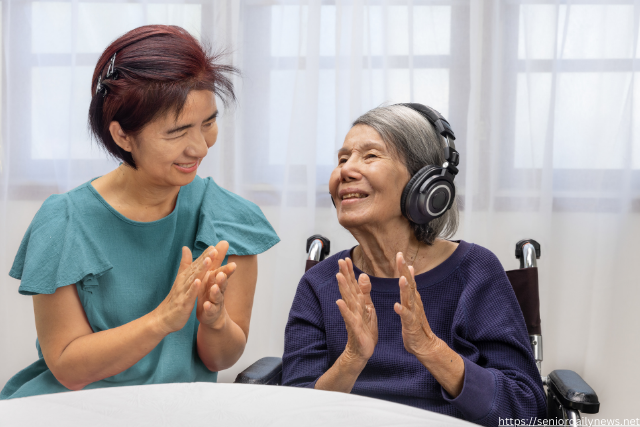Music Therapy for Seniors: 5 Powerful Benefits for Aging Well

As we age, our physical, emotional, and cognitive needs evolve. One gentle yet powerful way to support overall well-being in the golden years is through music therapy. This engaging, enjoyable, and evidence-based approach can bring harmony to both body and soul—no musical background required.
What Is Music Therapy?
Music therapy is a form of therapeutic treatment where trained professionals use music to help individuals achieve specific health goals. This can include listening to music, singing, playing instruments, or even composing songs. Sessions can be individual or group-based, and they are tailored to each person’s needs.
The Healing Power of Music
Music has a unique way of reaching into our memories and emotions. For many seniors, a familiar tune can bring back joyful moments, reduce feelings of loneliness, or spark meaningful conversations. But the benefits go well beyond nostalgia.
Let’s explore how music therapy can positively impact seniors:
1. Boosts Memory and Cognitive Function
Music stimulates many areas of the brain, including those involved in memory, attention, and language. For seniors living with Alzheimer’s or other forms of dementia, music therapy can trigger memories and enhance communication. A beloved song from youth can help recall names, faces, or past events that might otherwise feel out of reach.
2. Reduces Anxiety and Depression
Music has a soothing effect on the nervous system. Soft melodies can help calm restlessness, reduce anxiety, and ease symptoms of depression. Singing or playing music also promotes the release of dopamine—a “feel-good” chemical in the brain—offering a natural mood lift.
3. Encourages Physical Activity
Tapping your toes, clapping your hands, or dancing to a rhythm encourages gentle movement. Music therapy often incorporates exercises that improve motor coordination, balance, and flexibility. Even seated movement to music can offer physical benefits and help with circulation.
4. Promotes Social Connection
Group music therapy creates a shared space for seniors to interact, express themselves, and form bonds with others. Whether it’s singing in a group or participating in a drum circle, these social interactions can help combat feelings of isolation and build a sense of community.
5. Supports Emotional Expression
Sometimes, words fall short—but music can say what we feel. Music therapy gives seniors a safe outlet to express emotions, whether it’s joy, sadness, hope, or love. This can be particularly helpful for those who find it difficult to articulate feelings due to stroke or cognitive decline.
Getting Started with Music Therapy
You don’t need to be a musician to benefit. Many senior centers, nursing homes, and healthcare facilities now offer music therapy sessions led by certified music therapists. If you’re looking to explore it at home, here are a few simple ideas:
- Create a playlist of favorite songs from your past.
- Sing along to tunes you love.
- Join a local singing or music group.
- Try simple instruments like maracas, tambourines, or hand drums.
- Listen to calming music during relaxation or before bedtime.
In Tune with Well-Being
Music therapy is more than just entertainment—it’s a bridge to better health and a richer emotional life. Whether you’re tapping your feet to a swing tune, humming a lullaby, or swaying to a soft ballad, remember this: every note has the power to heal, connect, and uplift.
Image Designed Using Canva






